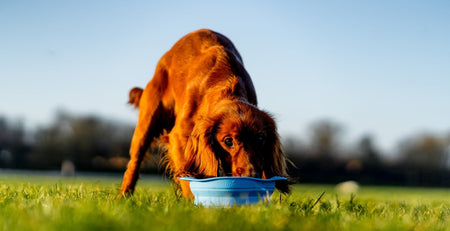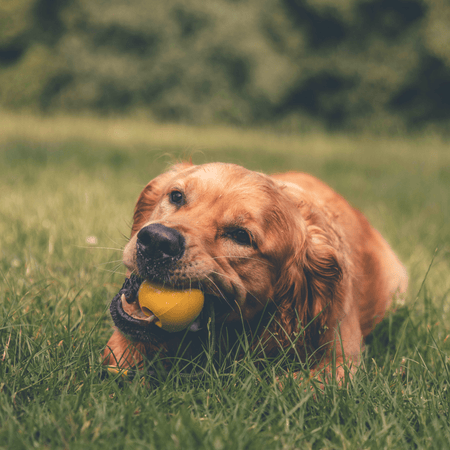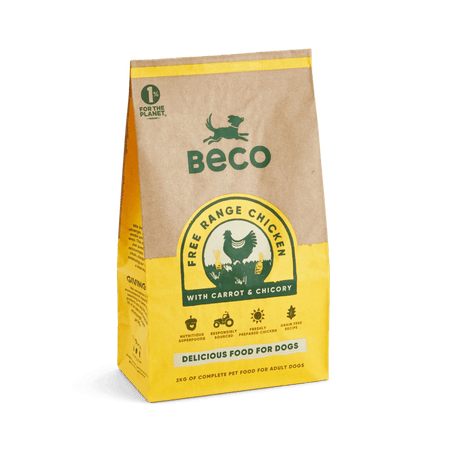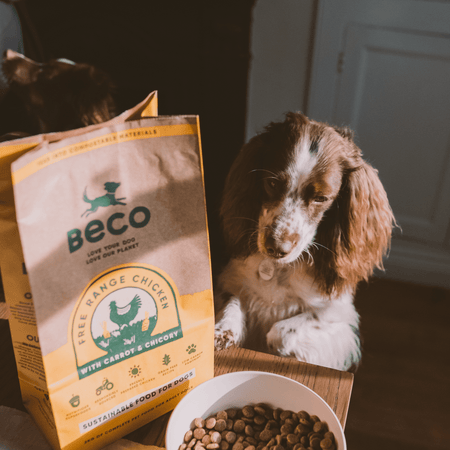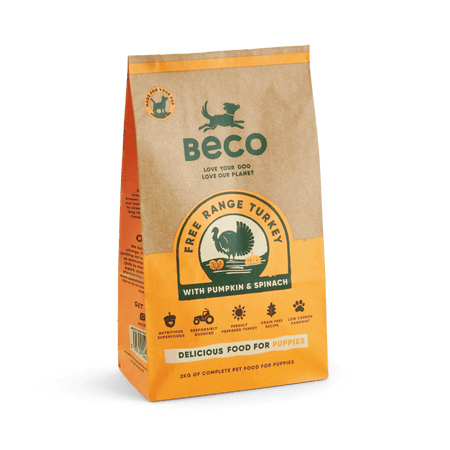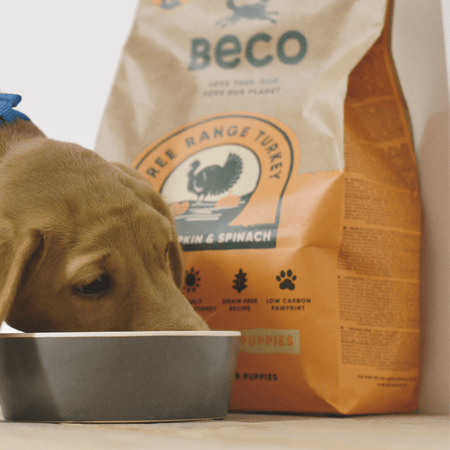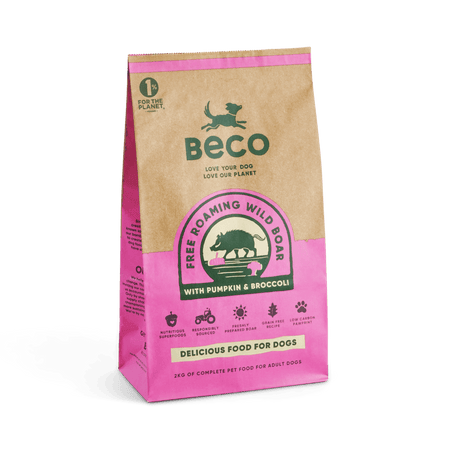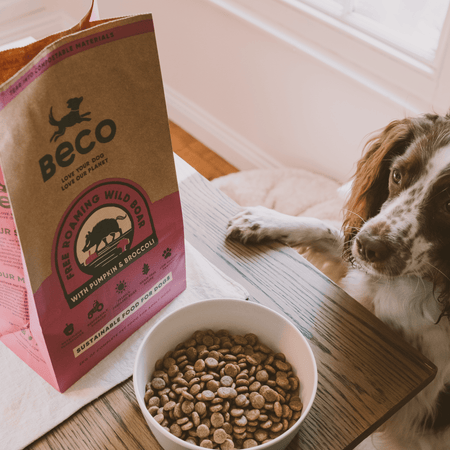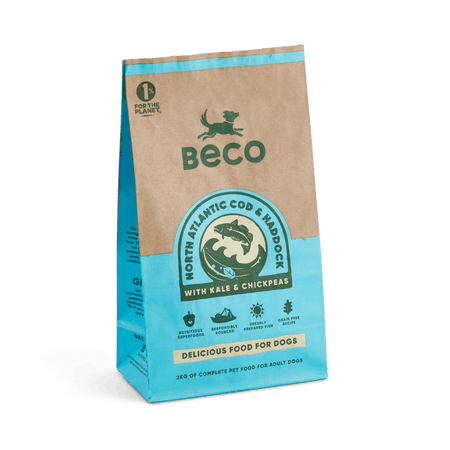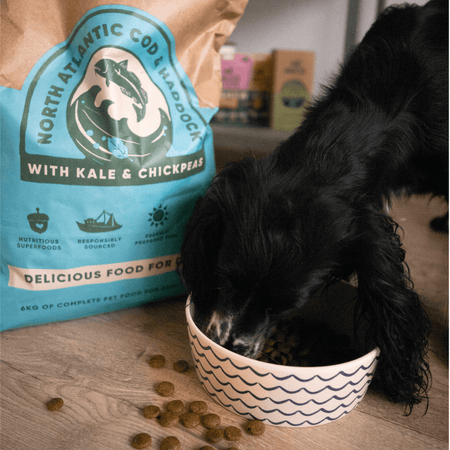When it comes to caring for your pregnant dog, one of the most pressing concerns you might face is understanding the right nutrition for her. Puppy food is often recommended and you might be wondering if you should be feeding it to your pregnant dog.
Although it might seem strange, puppy food is actually an ideal food type for pregnant dogs due to its higher nutritional content. Want to know more? Keep reading!
Key Summary
Puppy food is ideal for pregnant dogs due to its high nutritional content, supporting the health of the mother and developing puppies.
Nutritional challenges during dog pregnancy can include obesity, nutritional deficiencies, and other health complications like gestational diabetes.
Pregnant dogs require an increasing amount of food and nutrients as their pregnancy progresses, with puppy food quantities increasing each week.
Inadequate nutrition can lead to health issues for the mother and puppies, including weight loss, dull coat, muscle loss, digestive problems and weakened immune function.
What Nutrition is Needed for a Pregnant Dog?
Pregnancy in dogs demands an increase in their nutritional intake, particularly if they are expecting a large litter, as the required nutrients multiply correspondingly, making puppy food an excellent source for these essential nutrients.
Pregnant dogs need at least 22% protein and a dietary energy supply of 1600 kcal per 450g of food to support their health and the growth of the puppies. The reason that puppy food suits the needs of a pregnant dog is that it contains a higher level of key nutrients including protein, as well as calcium, phosphorus and other beneficial nutrients.
Nutritional Difficulties for Pregnant Dogs
While nutrition is paramount for a pregnant dog's health, certain challenges can occur. The most common nutrition-related problem in breeding dogs is obesity. Obesity can not only increase the risk of complications during delivery, but also affect the number of eggs released during ovulation and even hamper milk production post-birth. Other common health complications that can occur in a dog during pregnancy, which can affect nutrition, include:
Nutritional deficiencies
Insufficient calorie intake
Gestational diabetes and blood sugar issues
Nutritional imbalances
Hyperemesis gravidarum
Difficulty eating
Should I Feed My Pregnant Dog Puppy Food?
The answer to this is simple – yes. Puppy food for pregnant dogs tends to contain higher levels of crucial vitamins and minerals compared to adult dog food. It's specifically designed to support rapid growth and development, which makes it ideal for pregnant dogs.
According to a study, by the end of gestation, a pregnant dog should receive 25% to 50% more energy than her maintenance needs with a nutrient split of 22% proteins, 8% fat, 1% calcium and 0.8% phosphorus. These levels can effectively be achieved by feeding your pregnant dog high-quality puppy food.
What are the Main Differences Between Puppy and Dog Food?
| Puppy Food | Adult Dog Food | |
|---|---|---|
| Nutrient Levels | Has a higher concentration of protein, essential fats, vitamins, and minerals that support rapid growth, development, and energy needs. | Offers a balanced nutritional profile, but with lower protein, fats, and mineral content |
| Caloric Density | More calorie dense due to the higher content of protein and fat, supporting growth, high metabolism, and energy needs. | Fewer calories per serving, aimed at maintenance in less active, mature dogs. |
| Kibble Size | Typically smaller making it easier for puppies with small mouths and developing teeth, but not ideal for larger dogs who may eat too much in one go. | The kibble size in adult dog food is generally larger, which helps clean teeth and is suitable for mature dogs with a full set of strong teeth. |
| Ingredients | Puppy food often includes DHA (a type of Omega-3 fat), which is important for brain and vision development. | Adult dog food usually doesn't contain DHA, as it's less critical for fully grown dogs. |
What to Feed a Pregnant Dog | Pros and Cons of Puppy Food
Pros:
Higher levels of essential nutrients
Sufficient caloric intake to support pregnancy
Supports healthy litter development
Supports the mother's health during pregnancy
Helps maintain the mother's energy levels
Cons:
-
Overfeeding can lead to obesity
Not suitable for dogs with certain health conditions
May lead to nutritional imbalances if not monitored
Cost
Risk of rapid weight gain after whelping
What Can Happen If I Don’t Feed My Pregnant Dog Puppy Food?
Nutrition plays a critical role in the health and wellness of a pregnant dog and her developing litter and failing to meet these needs can have several negative effects. If your dog is lacking sufficient nutrients this could lead to weight loss which can affect the health of the mother and her litter, particularly later in pregnancy as the demand for nutrients from her growing puppies increases.
𝐢 Poor nutrition can also impact on your dog’s coat causing it to become dull and brittle, as well as a loss of muscle tone which is caused by a lack of protein. Protein is essential for the growth of foetal tissues, including the brain as well as the development and maintenance of muscle mass in the mother.
Poor nutrition in a pregnant dog can also lead to digestive problems such as uncontrolled diarrhoea, especially if your dog tries to overcompensate for the lack of nutrients by eating more than usual.
Lastly, the overall immune function of your dog could be compromised. Pregnant dogs require higher amounts of certain nutrients, such as folic acid, to maintain their immune systems. A weak immune system can leave the mother susceptible to infections, which could also affect the puppies.
Feeding During Pregnancy
Feeding your pregnant dog correctly, with something such as puppy food, during her gestation period is critical to her health and the health of her developing puppies. Pregnancy in dogs typically lasts for around 63 days, approximately nine weeks, and the nutritional needs of your dog will change as the pregnancy progresses.
Weeks 1-3
During the first three weeks of pregnancy, your dog's dietary needs will not significantly increase and it is okay to continue feeding her high-quality adult dog food, although you can begin to introduce some puppy food for your pregnant dog if you want.
Weeks 4-5
By the fourth week of pregnancy, the foetuses start to develop rapidly, increasing the demand for nutrients. At this stage, you should start feeding your pregnant dog puppy food if you haven’t already but be sure to make a slow transition. Continue to feed your dog the same amount of food as before, but with the more nutrient-dense puppy food.
Week 6
By the sixth week, your dog's nutrient and calorie needs will start to increase rapidly. You should increase her food intake to about 10-20% more than what she was eating prior to pregnancy by increasing the frequency of meals rather than the size to avoid overstretching her already under-pressure stomach.
Weeks 7-9
From week seven onwards, the puppies are growing rapidly, and your dog's energy requirement may be up to 50% more than before she was pregnant. Continue increasing her food intake gradually. By the end of the pregnancy, you may be feeding 25-50% more food, divided into several small meals a day.
Throughout your dog’s pregnancy ensure that there’s constant access to fresh water, keep monitoring your dog’s weight and body condition, adjusting her food quantities accordingly, and take her for frequent checks to the vets.
Feeding Patterns & Timescales
| Weeks of Pregnancy | Increase in Puppy Food |
|---|---|
| Week 1 - 4 | No increase needed |
| Week 5 | 10% increase |
| Week 6 | 20% increase |
| Week 7 | 30% increase |
| Week 8 | 40% increase |
| Week 9 (and onwards, if necessary) | 50% increase |
Frequently Asked Questions (FAQs)
Are There Any Alternatives to Puppy Food?
While puppy food may be the best choice for a pregnant dog due to its enriched nutrients, there are alternatives.
Specially-Formulated Foods
Some commercial foods are specially designed for pregnant and lactating dogs. They deliver increased protein, fat, vitamins, and minerals, similar to puppy food.
Homemade Diets
A diet crafted at home under the supervision of a veterinary nutritionist is another option. This allows for custom tailoring of the diet to your dog's specific needs.
Raw Diets
Balanced raw diets can also meet the nutritional needs of pregnancy. As with homemade diets, professional guidance is crucial to avoid nutritional imbalances.
Are there any Times that Feeding a Pregnant Dog Puppy Food isn’t Appropriate?
Yes, if your pet has certain health conditions or is prone to obesity, consult your vet who can advise on the best UK brand of puppy food for your pregnant dog.
What Do I Feed My Dog After the Birth?
After birth, continue feeding her puppy food until the puppies are weaned. After that, gradually transition her back to regular adult dog food.
Conclusion
So if you’ve been wondering if you should feed your pregnant dog puppy food, this article has laid the benefits out clearly. Puppy food is an excellent choice to support your dog and her litter throughout her pregnancy, providing increased nutrients that are ideal for your dog’s health and development of her puppies. Remember, every dog is unique – always consult a vet for personalised advice on your dog’s dietary needs during pregnancy.




